What kind of coffee is Rosa gesha? Introduction to the flavor characteristics of the origin of Rosa coffee beans
Professional coffee knowledge exchange more coffee bean information please follow the coffee workshop (Wechat official account cafe_style)
Some time ago, a coffee practitioner posted a statement on several social platforms that the Ethiopian Sakuran coffee bean is the rose summer variety coffee bean, which caused a heated discussion among coffee lovers. For a long time, the free translation of Huakui coffee beans has led to the misunderstanding of rosy summer coffee beans and Huakui coffee beans. In fact, Sakui coffee beans are native varieties of sun-tanned Essex coffee beans from an Ethiopian Sida Mohambela buku processing plant. Sakui is the name of a domestic raw bean company. Rosa coffee represents a coffee variety, and this variety is also distributed in different coffee growing areas for research and production. So Qianjie in this article and friends to popularize this beloved Arabica coffee variety-Geisha.
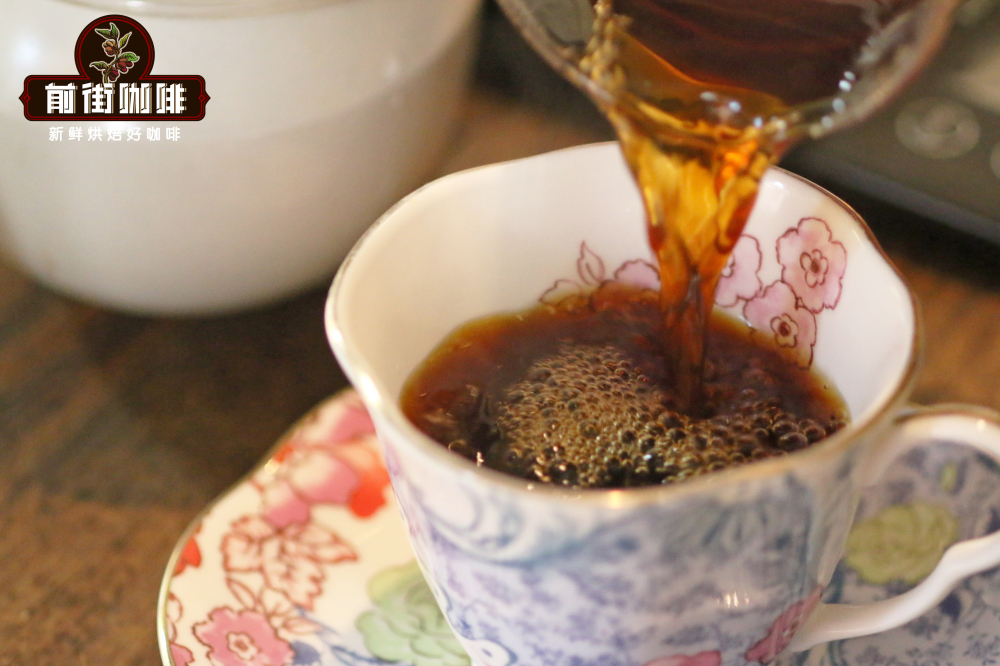
The variety Geisha was discovered in the forests of Ethiopia in 1931. Rosa was then sent to the Coffee Institute in Kenya, introduced to Uganda and Tanzania in 1936, Costa Rica in 1953 and Panama in 1970. At first, little attention was paid to Rose Summer, until the Panamanian Emerald Manor, also known as Panama Geisha Hacienda La Esmeralda, separated it from other varieties in 2003 and became the champion of the BOP competition in 2004. The rose summer variety officially entered everyone's line of sight. Although the flavor of Rosa Variety is exquisite, such an elegant flavor comes from a specific planting environment. Rose varieties are very picky about their growing environment and are required to be planted in areas with high altitude, cloudy shade or a large number of shade trees and fertile soil. High-altitude rose summer coffee with obvious floral aroma, delicate and elegant fruit acid, such an elegant flavor is also one of the reasons why it is popular all over the world.
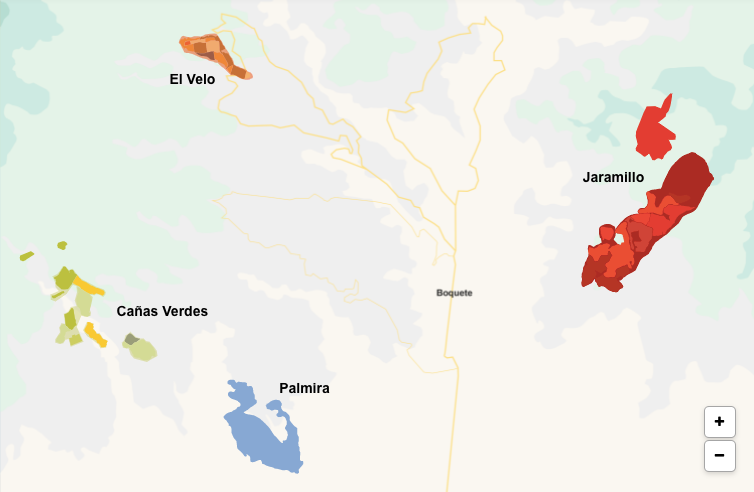
The most famous of the Rosa coffee beans we hear every day is the Rosa coffee beans from the Emerald Manor in Pokuet, Panama. Since its unique flavor was identified in 2003, it has been the champion of many raw bean competitions, including BOP. In the daily brewing of Qianjie coffee, Panamanian rose shows the scent of roses and citrus flavors, more like a cup of flower and fruit tea. Jadeite Manor is one of the outstanding ones, one is that Jade Manor is the earliest discoverer of Rose Summer, the other is that Rose Summer is the winner of consecutive BOP championships, and the third is that it established its own quality system, and several years later, Rose Village Manor also adopted its own grading system.
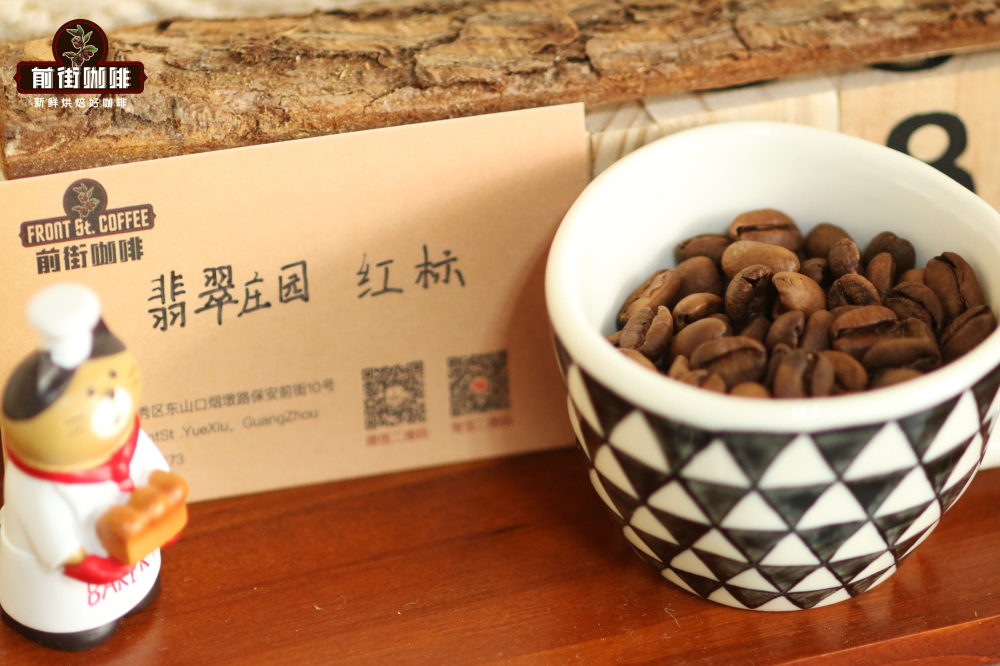
It can be divided into three parts: red mark rose summer coffee beans produced on subdivided plots at an altitude of 1600-1800m, green standard rose summer coffee beans produced and mixed in manor subdivided plots at an altitude of 1600-1800m, and new blue standard rose summer coffee beans produced and mixed in volcanic rocks at an altitude of about 1500m.
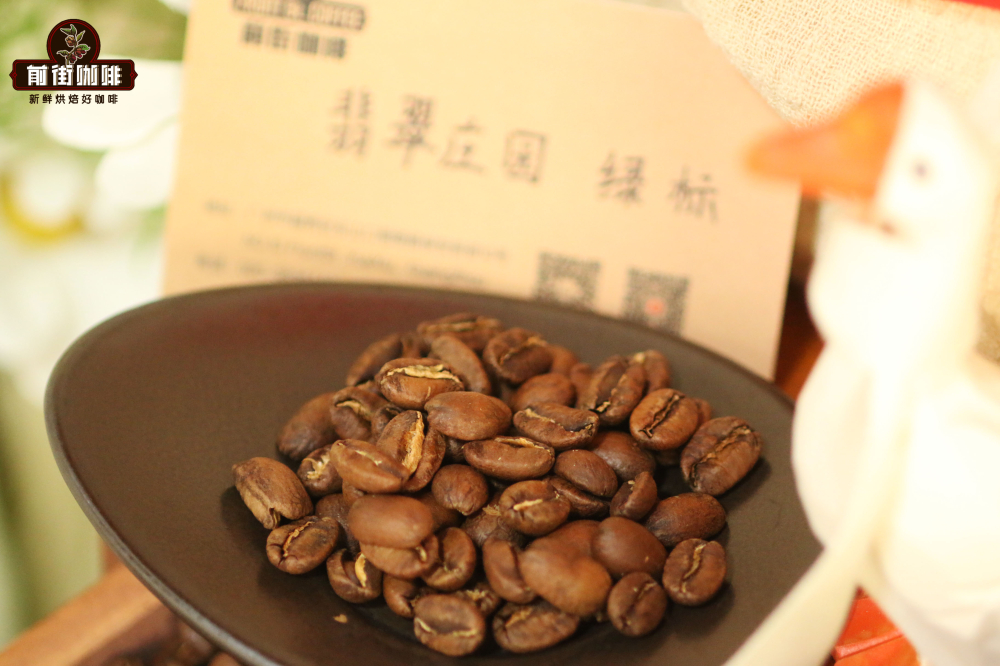
For the difference in flavor, the jadeite manor sun red roses summer coffee beans come from the same plot and are planted at high altitude, so they will be fuller and clearer in flavor, with the sour and sweet flavor of strawberries, the aroma of roses, the tea taste of oolong tea and the aftertaste of honey. Although the green standard washed rose summer coffee beans in Jade Manor do not come from the same plot, they are also grown at high altitude, so the flavor will be relatively rich and fresh, with the aroma of jasmine and ginger, the acidity of citrus fruits and Tianguanyin tea. Compared with the above two, the Emerald Manor volcanic rock washed new blue standard coffee beans are planted at a relatively low altitude, so the flavor will be relatively fresh and pleasant, with the aroma of white flowers, the acidity of citrus and the taste of honey green tea.
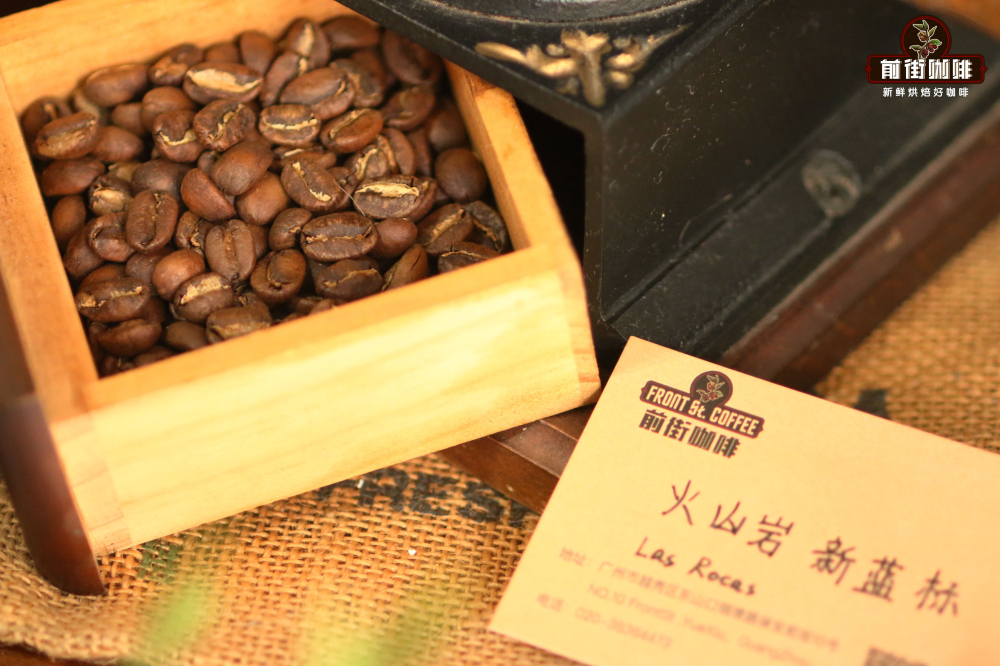
In addition to the famous rose summer variety in the Emerald Manor, careful friends will also notice that there is also a coffee bean from Rosa Village in Ethiopia, so ask Qianjie Coffee, this coffee bean variety is also known as Rose Summer ~ no! Although the name of Rose Summer Village is the same as that of Panamanian Rose Summer, it is actually a completely unrelated bean species, which can be distinguished from the appearance of the two beans. Qianjie Coffee will discuss it separately as a rose summer variety of Ethiopia.
In 2007, documentary director Adam Overton and his photographer wife Rachel Samuel came into contact with the Gera Coffee Forest in the Banchi Magi region (Bench-Maji) while filming a documentary about Ethiopian coffee for the Ethiopian government. In the process, they not only reacquainted themselves with the great land of Ethiopia, but also came up with the idea of building their own coffee farms and brands, so Wllem Boot, the mule owner, learned Panamanian planting techniques and manor management a few years ago. Guoxia Village is also the first coffee plantation in Ethiopia.
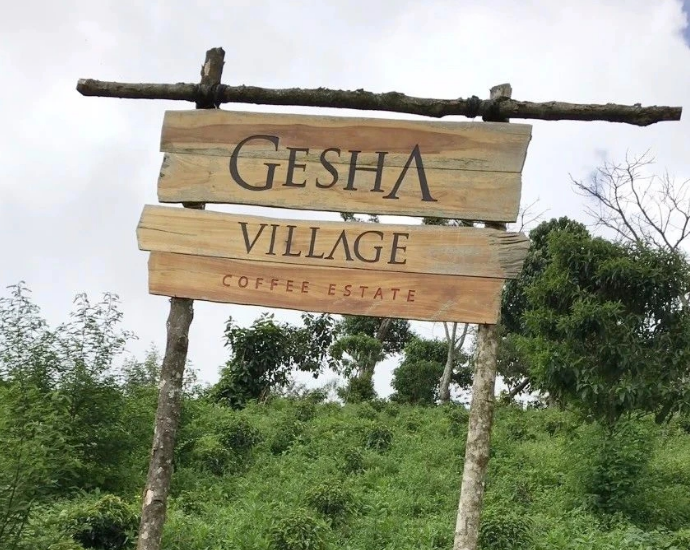
Adam followed Willem Boot to explore the surrounding forest and discovered a variety of wild coffee trees in a jungle surrounded by dense forests (known as the Gori Rose Summer Forest), of which the most surprising was the native Rosa species. So they collected seeds from native rose trees, screened them, and planted them in Rosa Village. And decided to set up the manor here, named Gesha Village Coffee Estate (Rosa Village Coffee Manor), and subdivided the estate into plots, variety management and products.
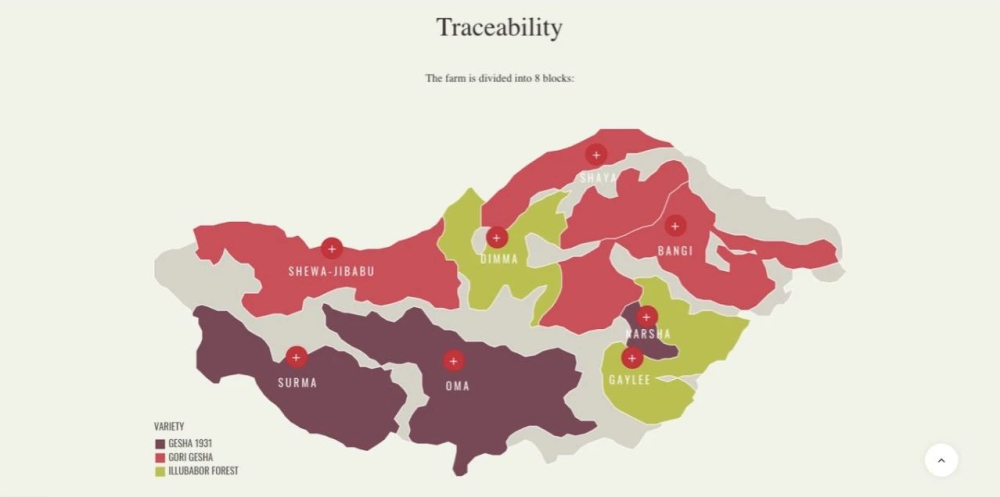
The Rosa Coffee beans grown in the Ethiopian Rosa Village are not famous in Panama. Three varieties are cultivated in Rosa Village, namely, Gori Gesha, Gesha 1931 (Gesha 1931) and IIIubabor Forest. The first two are related to the famous Panamanian variety, but not the same, which is a disease-resistant variety provided by the Ethiopian Research Institute.
Ruoxia Village also divides the coffee produced here into five batches, competitive bidding, gold bid, red bid, green bid, Chaka chaka. Among them, the bidding batch only accounts for 3.7% of the annual output of the manor, and the top batch of the manor is selected through layers of strict screening. Can only be obtained through global bidding.
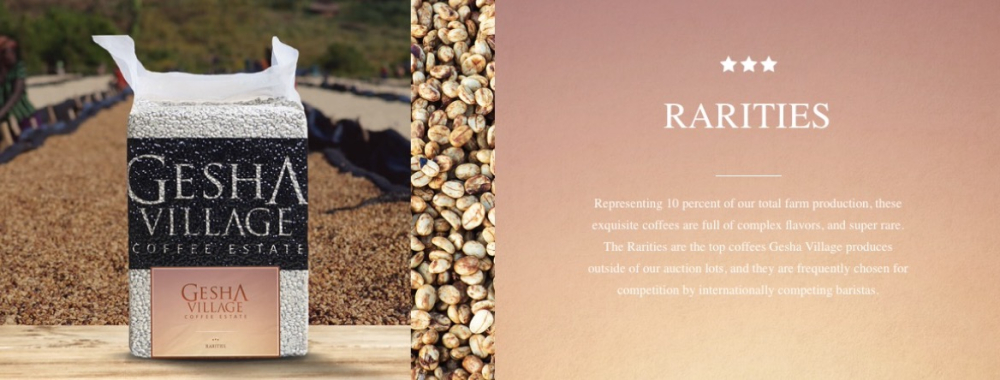
Gold standard batch of rose summer coffee accounts for about 10% of the annual output of rose summer village manor, which is very rare. It is the top rose summer coffee bean in rose summer village manor besides bidding. Before this, Qianjie also tested a gold label batch (Oma 059 batch) from Oma plot, which was dried in the sun for 32 days, and the variety was Rosa 1931, which is exclusive to Oma plot. In the stage of testing the dry aroma of the cup in the front street, I smelled the strong dry aroma of fruit, and after pouring into the boiling water, it became a strong aroma of flowers and berries at the stage of smelling wet fragrance. After the current street really tasted this golden standard rose summer, the entrance is obviously citrus and creamy, and the acidity is not as bright as Yega Sheffield. On the contrary, the acidity of Jinbiao Rose Summer Coffee is softer and sweeter. The sweetness of caramel and cream continues, with a fermented finish.
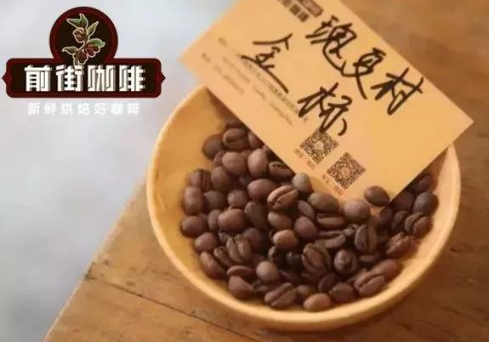
The coffee beans of the red standard batch account for about 15% of the annual output of the Ruoxia village manor, with complete traceability, the cup test score is more than 88 points (sca standard), has the typical Rosa village flavor, the flavor intensity and complexity are slightly weaker than the gold standard batch, and it is a single product batch with very high performance-to-price ratio. During the 20-year production season, Qianjie Coffee chose a rose summer from the Shewa-Jibabu plot and a sun-treated Gori rose summer. In the cup test, this red-marked Gori rose has the tonality of tropical fruit, bergamot and lemon, sweet cream and mixed with fermented flavor, the temperature is slightly cool, and the aroma of jasmine is slowly revealing. the aftertaste is reminiscent of toffee and almonds.
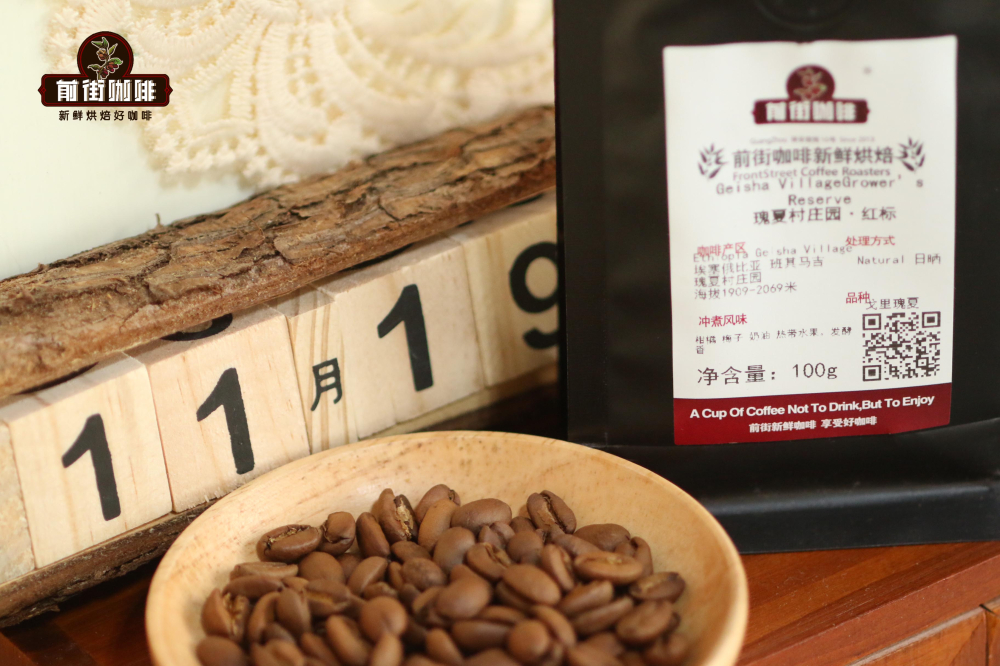
The green label batch comes from a single plot of Guoxia Village Manor and is a batch of a single variety. The green label batch provides complete traceability information for each batch number, including the name of the farm plot, the variety of coffee and the date of processing. Unlike other batches, Chaka batches are mixed with coffee from all the plots on the estate and throughout the production season. Chaka batch of coffee has two treatments: sun treatment and water washing treatment, including three coffee varieties in Rose Summer Village Garden, namely Rose Summer 1931, Gori Rose Summer and Illubabor.
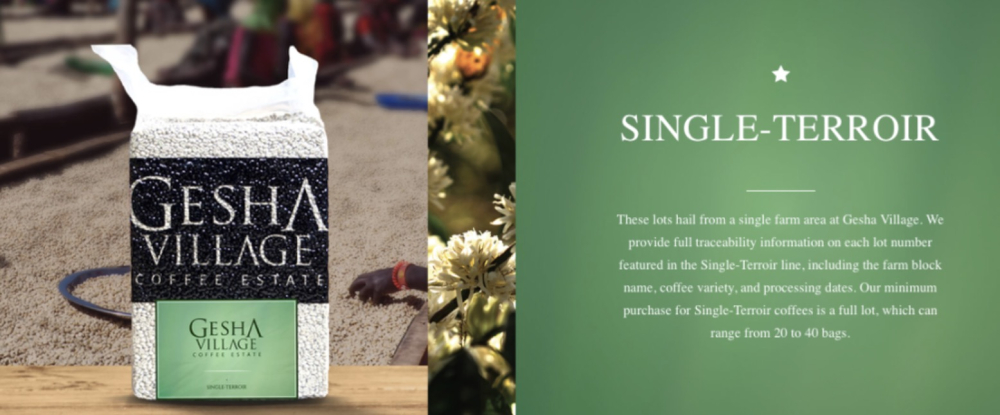
After seeing the difference between Panama Rose Summer Coffee and Ethiopian Rose Summer Coffee, everyone is ready to make a cup of Rose Summer Coffee. In Qianjie coffee, you can buy three grades of rose summer coffee beans: red mark, green mark and volcanic rock blue mark, while in rose summer village, only red mark batches ~ Qianjie coffee beans are shipped within 5 days after baking is completed. therefore, after receiving the coffee beans, do not worry to drink, you can first raise beans, let beans in a cool and dry place sealed 3-4 days after the baking date. The rosy summer coffee brewed in this way will be more delicious.
Qianjie Coffee Rose Summer Coffee Bean brewing parameters suggested: filter cup: V60 # 01, powder amount: 15g, powder-water ratio: 1:15, brewing water temperature: 90-91 degrees Celsius, degree of grinding: medium and fine grinding (20 standard sieve pass rate of 80%).
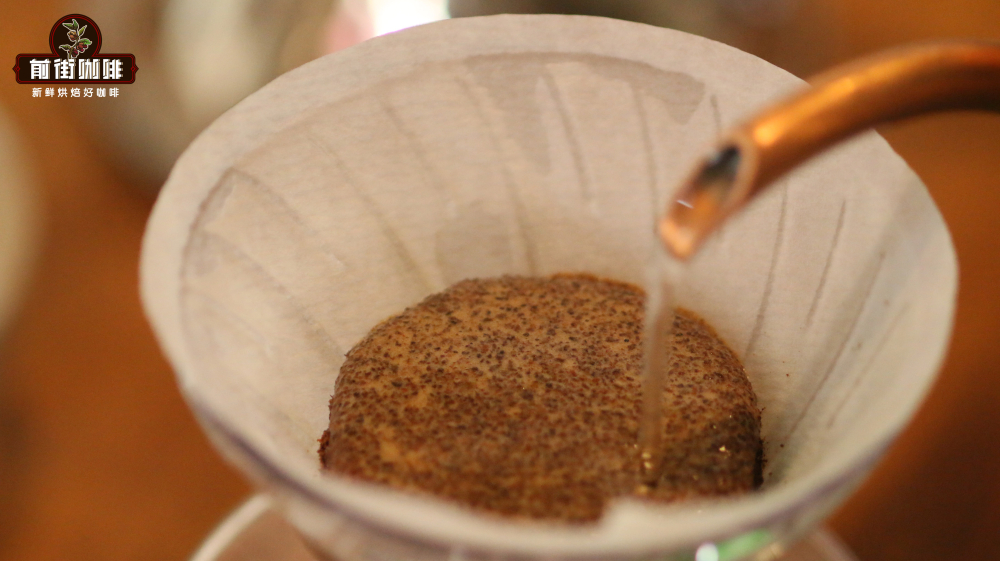
Three-stage water injection is recommended: press the timer, the first stage is steamed with 30g water for 30 seconds, the second stage of small water is injected around 125g after 30 seconds, and when the coffee liquid level in the filter cup drops to 225g, the third stage of small water is injected around to 225g. When all the coffee liquid from the filter cup flows into the next pot, remove the filter cup and end the extraction. The total extraction time of rose coffee beans is generally 2 minutes 10 seconds-2 minutes 20 seconds.
For more boutique coffee beans, please add private Qianjie coffee on Wechat. WeChat account: kaixinguoguo0925
Important Notice :
前街咖啡 FrontStreet Coffee has moved to new addredd:
FrontStreet Coffee Address: 315,Donghua East Road,GuangZhou
Tel:020 38364473
- Prev
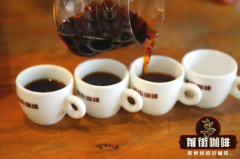
Barista skills-what are the common misunderstandings in making hand-brewed coffee? hand-brewed coffee teaching.
Hand-brewing coffee is a seemingly simple but actually very complicated task. In a short period of about 2 minutes, there is a huge accumulation of knowledge. For beginners, it is easy to get into misunderstandings. In this issue, baristas will take stock of the misunderstandings that are easy to occur. Many friends are attracted by the elegant movements of baristas to make coffee, which will lead to the belief that techniques
- Next
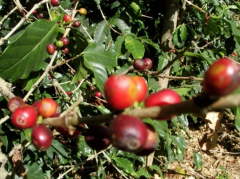
Top Coffee Bean-Ethiopian Double Champion Coffee Bean Aramco Delano Introduction.
TOH, the full name of the African Harvest Coffee Competition, is called the Double Champion. As the name implies, it means that you have won both the National Competition and the African Regional Finals. In the 2019/20 Ethiopian National, Amerilalo won first place and then emerged from the top of the African Regional Finals as a double winner. The winner, this coffee.
Related
- Beginners will see the "Coffee pull flower" guide!
- What is the difference between ice blog purified milk and ordinary milk coffee?
- Why is the Philippines the largest producer of crops in Liberia?
- For coffee extraction, should the fine powder be retained?
- How does extracted espresso fill pressed powder? How much strength does it take to press the powder?
- How to make jasmine cold extract coffee? Is the jasmine + latte good?
- Will this little toy really make the coffee taste better? How does Lily Drip affect coffee extraction?
- Will the action of slapping the filter cup also affect coffee extraction?
- What's the difference between powder-to-water ratio and powder-to-liquid ratio?
- What is the Ethiopian local species? What does it have to do with Heirloom native species?

